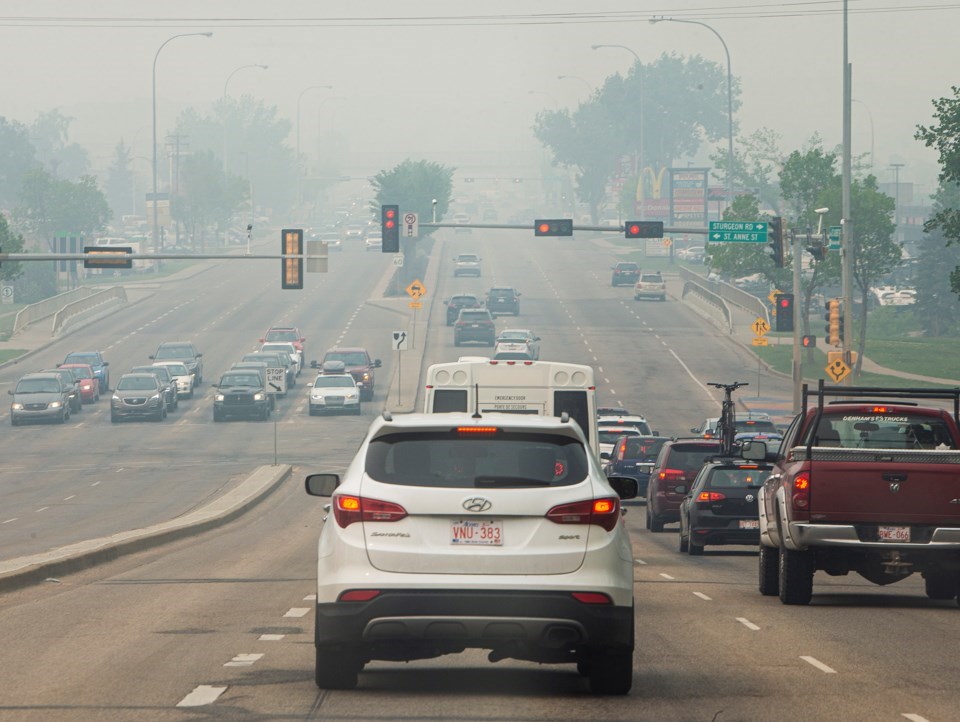Critics have said the Alberta’s climate plan lacks teeth and it remains to be seen whether Albertans will bite into climate issues for the upcoming general election.
Albertans will head to the polls and vote for the next provincial leader on May 29, and Dr. Brendon Boyd, an assistant professor in the anthropology, economics and political science department at MacEwan University said it’s hard to say if the United Conservatives Party’s climate plan will have an impact on the polls in the upcoming election.
On April 19, Alberta's former Environment Minister Sonya Savage released the province's emissions reduction and energy development plan (ERED) — a plan that aims to “balance the economy and the environment” with an “aspiration to achieve a carbon neutral economy by 2050.”
The plan emphasized that Alberta is an energy-producing province and as such will require a different approach to reducing emissions than other jurisdictions in Canada.
“The key to reaching Alberta’s aspiration of carbon neutrality by 2050 will be based on innovation and technology developed and deployed in industrial sectors,” the report read.
The ERED highlighted areas of partnership and opportunity that could lead to reduced emissions including indigenous leadership, investing in programs such as technology innovation and emissions reduction (TIER), emissions offset, clean technology advancements, carbon capture, utilization and storage, and reducing emissions by sector.
Critics have said the ERED lacks solid goals and emission targets.
Simon Dyer, deputy executive director at the Pembina Institute said the ERED does not include a commitment to reduce emissions in the short-term and without a short-term target, decisions could be made that “lock in higher emissions.”
“Such as building natural-gas-fired power plants to produce electricity instead of investing in renewable energy, battery storage and better transmission inter-ties with neighbouring provinces,” Dyer said in a statement.
During the press conference, Savage told a reporter, you can't just pick random targets with a random day and say, ‘We're gonna get there.’
“We have to do the hard work and that's what our plan is going to do. We're going to do it sector by sector to look at abatement curve, carbon abatement curves, to understand what is vital,” she said.
The report highlighted 11 sectors including oil and gas, electricity, hydrogen, and agriculture and the ways the province could collaborate with key players in each industry to support emission reductions.
Boyd said he thinks everything the government and politicians are doing needs to be “viewed through the lens of the upcoming election.”
Boyd said the climate plan is a high-level plan that identifies areas where action could be taken, but in terms of concrete measures, there was nothing bold or aggressive.
“I didn't really see any specific actions. There was a lot of talk about plans to consider forming advisory groups to explore. the sort of main crux of the plan to 2050 targeted was noted as aspirational,” he said.
The plan being high-level means the government doesn’t have to commit to anything, he said.
“It still leaves them a pretty open playing field after to do what they want to do if they were able to win the election and form government,” he said.
In a press statement, the NDP Critic for the Environment, Marlin Schmidt, said the ERED lacked credibility on climate and the economy.
“By their own admission, this so-called plan is purely aspirational, does not set firm targets, lacks accountability, and relies on technology that is yet to be deployed,” he said.
Schmidt said the NDP plans on achieving a net-zero electricity grid by 2035 and a net-zero economy by 2050.
“We will do so by working with industry to create the proper regulatory framework and market structure, as well as providing incentives in cleantech to restore our competitiveness and attract investment,” he said.
In an emailed statement, the Canadian Association of Petroleum Producers (CAPP) were less critical of the plan.
“While we still need to unpack the details and the potential impacts to the industry, the ERED importantly takes into account the need to balance energy security and supply challenges, economic prosperity and emissions reductions and is an effort to chart a pragmatic path forward for the province,” said Lisa Baiton, president and CEO of CAPP.
Boyd said he doesn’t believe this election will be about environmental issues.
“My guess is a part of this is about being able to play defense and being able to say, ‘Look, we have a plan.’
“If the Notley government attacks their record on the environment, which you can be fairly certain they probably will try to do so, this is a little bit of being able to play defense for the election,” he said.




